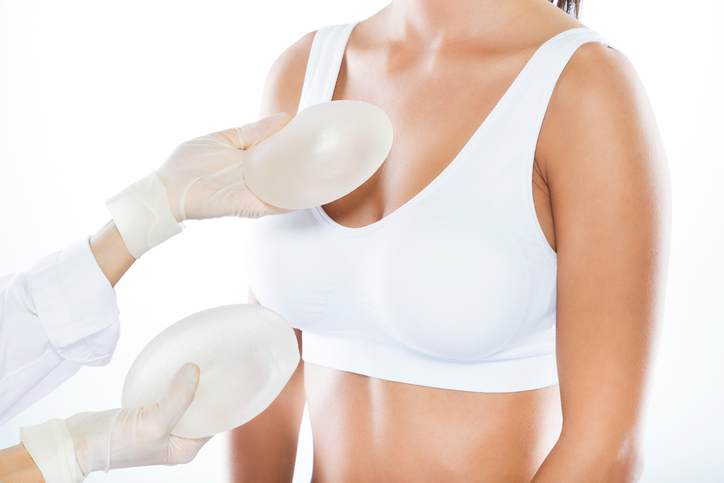Are Breast Implants Dangerous?

 Like with any surgical procedure, breast augmentation comes with a series of risks. This, however, shouldn’t deter you from getting the big, beautiful breasts you want and deserve. Instead, take the opportunity to educate yourself on the possible outcomes so you can be prepared in the rare event something does happen. Here are the top five risks associated with breast implants that Dr. Widenhouse believes you should be aware of, but not be scared of.
Like with any surgical procedure, breast augmentation comes with a series of risks. This, however, shouldn’t deter you from getting the big, beautiful breasts you want and deserve. Instead, take the opportunity to educate yourself on the possible outcomes so you can be prepared in the rare event something does happen. Here are the top five risks associated with breast implants that Dr. Widenhouse believes you should be aware of, but not be scared of.
1. Extra Scar Tissue
Capsular contracture is one of the most commonly reported problems that occur as a result of breast augmentation. This condition occurs when scar tissue forms around the breast, like a capsule, causing the breast implant to harden and distort. While this condition may look a little frightening, it’s nothing to panic over. This condition is in no way life-threatening or dangerous. Simply have your breast implants evaluated by Dr. Widenhouse, and have the affected implant removed and replace to solve the issue.
2. Getting a Leak
While both saline and silicone breast implants have the potential to rupture in the body, saline breast implants are the only implants that actually end up deflating. When a saline implant ruptures, the saltwater solution that fills the implant is harmlessly absorbed by the body and the breast flattens over a period of two days. Saline breast implant ruptures are fairly easy to catch when they do happen. Silicone breast implant ruptures are a little trickier to spot. When the silicone implant leaks, you may not be able to notice for several months, as the breast does not deflate. Make sure to trust your instincts if you feel something change in your breasts, including experiencing numbness or tingling in the area.
3. Adverse Reaction
Infection, although not commonly associated with breast augmentation, is always a factor when introducing a foreign object into the body. Breast implants have the potential to attract bacteria that can end up wreaking havoc in the body. Following your breast augmentation, Dr. Widenhouse will watch you closely to look for signs of infection including symptoms like fever and heat radiating from the breasts. If you do happen to get an infection following your procedure, Dr. Widenhouse will help you get on infection-fighting antibiotics.
4. Changes in Sensation
When surgery involves sensitive areas of the body, there’s always a chance there will be a change in sensation in the treated area. The same goes for the nipples during breast enhancement surgery. While damaged nerves may repair and return sensation to the affected area, it’s been reported that over the past 10 years, 12 to 35 percent of women lost nipple sensation within three years of their breast implant surgery. On the other hand, nine percent of women report heightened nipple sensitivity following their breast enhancement procedure. Changes in sensation are common and never involve pain.
5. Your Implants Age as You do
This last one isn’t as much of a risk as it is a fact. Breast implants don’t last forever and you shouldn’t expect them to. According to the American Society of Plastic Surgery, the average shelf life of the typical breast implant is about 10 to 20 years. As the implants get older, the chances for rupture heighten, so it’s important you start getting your breast implants reevaluated after 10 years of having them, and consider getting them replaced soon after. You can also monitor your breast implant health yourself with regular breast exams and mammograms.
We hope we put your mind at ease about the possible risks associated with breast augmentation. If you’re interested in learning more about how breast implants can impact your life and body, contact us today to schedule your one-on-one consultation with Dr. Widenhouse.
LOCATION:
2683 Lake Park Drive
Charleston, SC 29406
LOCATION:
125 River Landing Drive
Suite 101
Daniel Island, SC 29492



 Reviews
Reviews Contact
Contact Gallery
Gallery Call
Call
